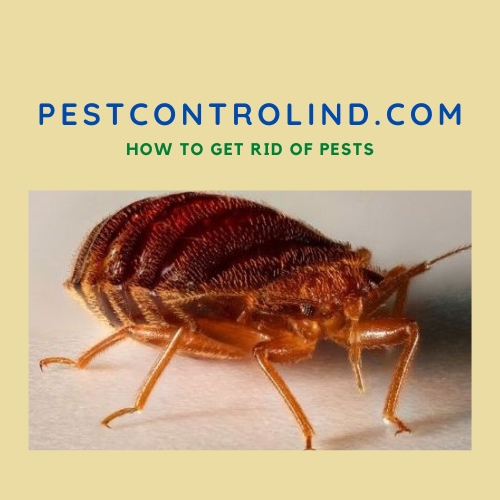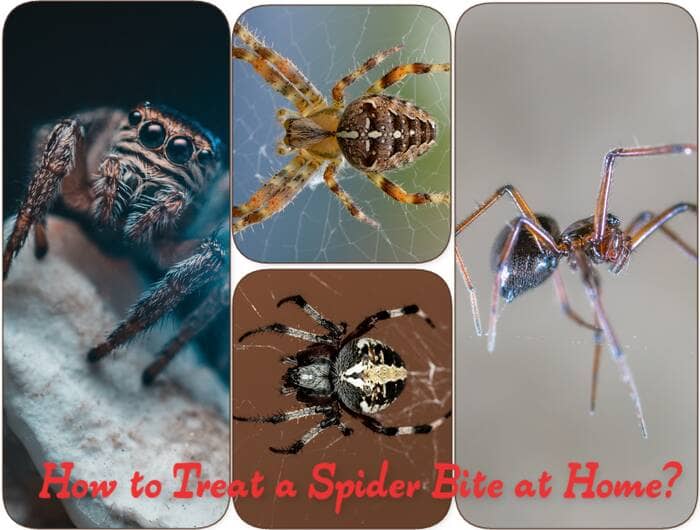How to treat a spider bite at home? Is spider bite dangerous? What are the home remedies to soothe a spider bite if there is no medicine at hand? And how do you apply all these tips?
Here is an article that simply answers all these questions.
I. Spider and its bite
The spider consists of two different parts connected by a small rod. The two parts are the head and the abdomen.
On the head, there are eight eyes and four appendages. On the first two appendages, there is a fang that is connected to the poison gland.
Spiders use these two fangs to immobilize their prey or to defend themselves.
Further down, two other appendages are used as a mouth. Below, there are eight legs.
There are four on each side of the spider.
The abdominal parts of the spider’s body are mainly used for food storage. But this part also contains spider silk and the lungs.
Spiders help control insect infestation in the wild.
Some spiders are less friendly when provoked, leading them to bite if they feel threatened or in danger.
Their venom can cause a variety of reactions, ranging from a mild but painful bite to an allergic reaction, and in some cases, they can even be fatal.
II. Signs of a spider bite?
A spider bite looks like a pinprick, so you may not notice it right away.
The first signs may be small red marks with some swelling.
Sometime after being stung, it will hurt a little more and the pain may spread to your back, stomach, and chest.
You may have stomach cramps and your stomach may become a little stiff.
Other possible symptoms that may accompany a spider bite include:
- Itching or rash;
- Pain around the bite;
- A red or purple blister;
- Sweating;
- Difficulty breathing;
- Headache;
- Nausea and vomiting.
II. Is the spider bite dangerous?
Spider bites are generally harmless. Many bites attributed to spiders are inflicted by other insects.
Skin infections have also been mistaken for spider bites.
In general, spiders only bite when they feel threatened.
Sometimes with severe bites, the skin all around the attacked area can die within hours.
Only a few types of spiders have organs long enough to penetrate human skin and venom strong enough to be deadly.
Because most spider bites do not penetrate the skin, they usually cause only mild reactions.
However, black widow and brown recluse spider bites can cause serious reactions that require immediate attention.
Allergic reactions to spider bites can occur but are rare.
III. How to treat a spider bite at home?
If a spider bites you, you should:
- Clean the area with mild soap and water to reduce the risk of infection.
- Avoid physical activity, as this can speed up the spread of venom in the body.
- It’s a good idea to contact a doctor if:
- You believe a venomous spider has bitten you.
- Symptoms are severe, persist or worsen.
- There are signs of infection or neurological symptoms.
- There are changes in heart rate, blood pressure, or breathing.
If possible, note what the spider looks like. This can help a doctor understand the nature of the bite and decide the best treatment.
Symptoms of non-hazardous spider bites usually go away on their own.
If necessary, use anti-inflammatory medications, such as ibuprofen, to relieve the pain.
However, some home remedies can help reduce discomfort. For example, you can put some ice on the affected area.
If blisters develop, ask a health care professional for an antibiotic ointment.
However, if there is more than a red bump, it could indicate a venomous spider bite.
If there are symptoms other than a red bump in the bite area, you should seek medical attention.
IV. Home remedies to treat a spider bite
Here are some grandmotherly solutions that you can use as alternatives to treating spider bites.
1. Vinegar
Almost everyone has vinegar in the kitchen, most often used to make salad dressings.
But vinegar is a clever first aid treatment when other remedies are not at hand.
Although not as powerful as essential oils, vinegar relieves the pain of a bite or sting and tightens the skin.
You don’t need to use expensive vinegar. Regular white vinegar is fine for this task, and apple cider vinegar can also do the trick.
2. Baking Soda
Baking soda is one of the simplest and most economical options when it comes to treating spider bites.
It seems to have many uses and insect and spider bites are among them.
Make a paste of baking soda with water and apply it several times a day to reduce the effects of the spider bite.
3. Essential Oils
Lavender is a very popular essential oil when it comes to treating insect bites.
You can apply this oil directly to the bites. It has soothing properties much like chamomile, and it can also be an analgesic.
It is particularly useful for spider bites and bee stings.
4. Aloe Vera
Aloe Vera is very often used for the treatment of multiple ailments. It is not surprising that it can help calm inflammation and itching.
This is because it contains all sorts of useful components, including vitamins, minerals, enzymes, and fatty acids.
You can use the gel inside a fresh Aloe Vera leaf or you can look for Aloe Vera gel at the store.
If you buy an Aloe Vera product, choose one with the highest possible Aloe Vera content and the fewest added ingredients, and preferably no questionable preservatives.
V. Should you kill spiders?
Spiders can be a nuisance in and around your home. Although they do not cause as much damage to your property as some pests.
They can certainly be a nuisance and even dangerous in some cases. This is because some spiders are poisonous and their bites can cause severe allergic reactions.
These reactions are usually most severe in children or the elderly, or people with weak immune systems.
It is no wonder that many people are looking for a way to keep spiders out of their homes.
Spider infestations are often less obvious than other pest problems!
The best way to prevent spiders from taking up residence in your home is to keep it clean and use spider repellents.
Useful Links:
Analysis of cases caused by an acute spider bite
Diagnostic approach to the patient with a suspected spider bite: An overview

